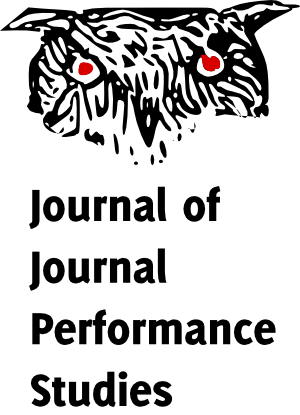JJPS License Preamble
17 June 2010
Free software licenses are a strange beast—or perhaps better described, virus. For commercial enterprises have deemed the most famous free software license, the GPL, in exactly those terms. While indeed the GPL makes it more likely for the fundamental source code to be available for a particular piece of software, it is also written in a way that allows the source code to easily make its way into the corporate world. When IBM starts touting the "benefits" of free software (or, more correctly, "open source software"), whither free software? There is strangeness afoot, especially when we see these ideas of "openness" being applied to other areas of cultural production, as with Creative Commons. Certain types of free software licenses, including the GPL, allow code to easily pass from the non-commercial to the commercial and back again, creating a transit loop that erases the very real differences between these vastly different types of institutions. "Non-commericial" clauses eliminate the possibility of small organizations from using materials to support their activities, further enforcing the idea of precarity.
This is an understudied and underexplored area that is thankfully receiving some interest through the work of many people, most notably Matteo Pasquinelli. In his recent book, Animal Spirits: A Bestiary of the Commons he describes the strangeness of these recent calls for a new "commons" and the ways in which this rhetoric of culture easily gets re-inscribed in ideas of precarity and "creative cities". (For a precis of the arguments in the book, read his The ideology of free culture and the grammar of sabotage.)
Thus, what is urgently needed is an examination of how free software licenses contribute to this neoliberal rhetoric, as well as how we, as software developers, activists, and intellectuals, can playfully create new forms of licenses that highlight our concerns. The license for JJPS is early attempt at that; there will surely be others.
JJPS License
In the following, "website" refers to the JJPS website and all of its associated pages, hosted at http://journalofjournalperformancestudies.org. "Software" refers to the code for the Firefox add-on as well as the code for the server.
The text on the website is available under the GNU Free Documentation License with the following modifications:
- The words "you" and "licensee" are redefined to be as follows: A "member of the public" is defined as anyone as long as s/he is not an EXCLUDED PERSON. An EXCLUDED PERSON is any individual, group, unit, component, synergistic amalgamation, cash-cow, chunk, CEO, CFO, worker, or organization of a corporation that is a member, as of the date of acquisition of this software, of the Fortune 1000 list of the world's largest businesses. (See http://money. cnn.com/magazines/fortune/global500/2008/full_list/ for an example of the top 500.) An EXCLUDED PERSON shall also include anyone working in a contractor, subcontractor, slave, or freelance capacity for any member of the Fortune 1000 list of the world's largest businesses.
The code is available under the GNU GPL V3 with the following modifications:
- The words "you", "licensee", and "recipient" are redefined to be as follows: "You", "licensee", and "recipient" is defined as anyone as long as s/he is not an EXCLUDED PERSON. An EXCLUDED PERSON is any individual, group, unit, component, synergistic amalgamation, cash-cow, chunk, CEO, CFO, worker, or organization of a corporation that is a member, as of the date of acquisition of this software, of the Fortune 1000 list of the world's largest businesses. (See http://money.cnn.com/magazines/fortune/global500/2008/full_list/ for an example of the top 500.) An EXCLUDED PERSON shall also include anyone working in a contractor, subcontractor, slave, or freelance capacity for any member of the Fortune 1000 list of the world's largest businesses.
